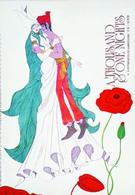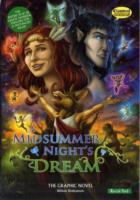Full Description
In recent years, the plurality of values of culture has been increasingly recognized in practical, academic, and policymaking contexts. Beyond its traditional intrinsic values—linked to aesthetics, authenticity, and excellence—its capacity to contribute to well-being, to promote identity and belonging and tolerance and inclusiveness, to stimulate creativity, and to foster innovation are ever more acknowledged by a great variety of social actors. However, an economy- and market-oriented perspective has come to dominate the administrative and managerial discourse on cultural valuation for a few decades. This has resulted in a predominance of an approach to valuing culture that is expressed exclusively in terms of its economic impact, obscuring other values of culture. The European research project UNCHARTED has tried to counteract this predominance by providing a broader vision of the societal value of culture in the European context and by applying this alternative view to some of the most relevant areas in which cultural valuation impinges on cultural management and cultural policy today. This book presents its main results.
Based on a pragmatist perspective, we have carried out an extensive multiple case study (65 cases in seven countries) that considers the multiplicity of agents who participate in cultural valuation processes (citizens, professionals of creation and preservation, experts, and politicians) and the diversity of evaluative practices in which they engage within three main areas: the field of cultural participation, the field of cultural production and heritage, and the field of cultural administration. The book shows the irreducible plurality of the values of culture, the characteristic complexity of the dynamics of valuation and evaluation in the cultural sphere, and the current shortcomings and possible improvements in institutional processes of cultural evaluation. It is essential reading for cultural professionals, policymakers, and scholars of culture.
Contents
List of figures vii
List of tables viii
List of contributors ix
Foreword: a daring collaborative intellectual project xiv
MICHÈLE LAMONT
Introduction 1
ARTURO RODRÍGUEZ MORATÓ
Mapping the plural values of culture: selection criteria of
UNCHARTED case studies 40
MATÍAS I. ZARLENGA AND NANCY DUXBURY
PART 1
Valuation in the cultural sphere 61
1 Critical factors in shaping the parameters of cultural
valuation in Europe 63
ARTURO RODRÍGUEZ MORATÓ, MATÍAS I. ZARLENGA, VICTORIA D.
ALEXANDER, AND OLIVER PETERSON GILBERT
2 Identifying values of culture 91
JOÃO TEIXEIRA LOPES AND OLE MARIUS HYLLAND
3 Evaluative practices in action: features, tensions, and resolutions 107
PAOLO FERRI AND SIMONE NAPOLITANO
4 Does value underpin cultural action? Policies, institutions,
and society 122
JULIEN AUDEMARD, FÉLIX DUPIN-MEYNARD,
AND EMMANUEL NÉGRIER
Contents
PART 2
Key approaches and recommendations for improving
cultural (e)valuation 143
5 Redefining cultural valuation processes: a general reflection
on possibilities in light of the UNCHARTED experience 145
ESZTER GYÖRGY, GÁBOR OLÁH, AND GÁBOR SONKOLY
6 Cultural strategic planning from the UNCHARTED perspective 160
GIULIA FIORENTINI AND ANTONELLA FRESA
7 New value perspectives in culture-led urban regeneration 184
ARTURO RODRÍGUEZ MORATÓ, VICTORIA SÁNCHEZ BELANDO,
MARIANO ZAMORANO, AND MATÍAS I. ZARLENGA
8 Promoting plural values in cultural information systems 208
JOÃO TEIXEIRA LOPES
9 The challenges of recalibrating the values of culture in the
cultural field: key recommendations 229
JULIEN AUDEMARD, FÉLIX DUPIN-MEYNARD, EMMANUEL NÉGRIER,
ARTURO RODRÍGUEZ MORATÓ, AND MATÍAS I. ZARLENGA
Appendices 245
Appendix A: UNCHARTED project: glossary of terms 247
MATÍAS I. ZARLENGA AND NANCY DUXBURY
Appendix B: Descriptions of case studies selected and analysed
in the UNCHARTED project 256
MATÍAS I. ZARLENGA AND NANCY DUXBURY
Appendix C: List of researchers and advisory board members 273
Index 276








